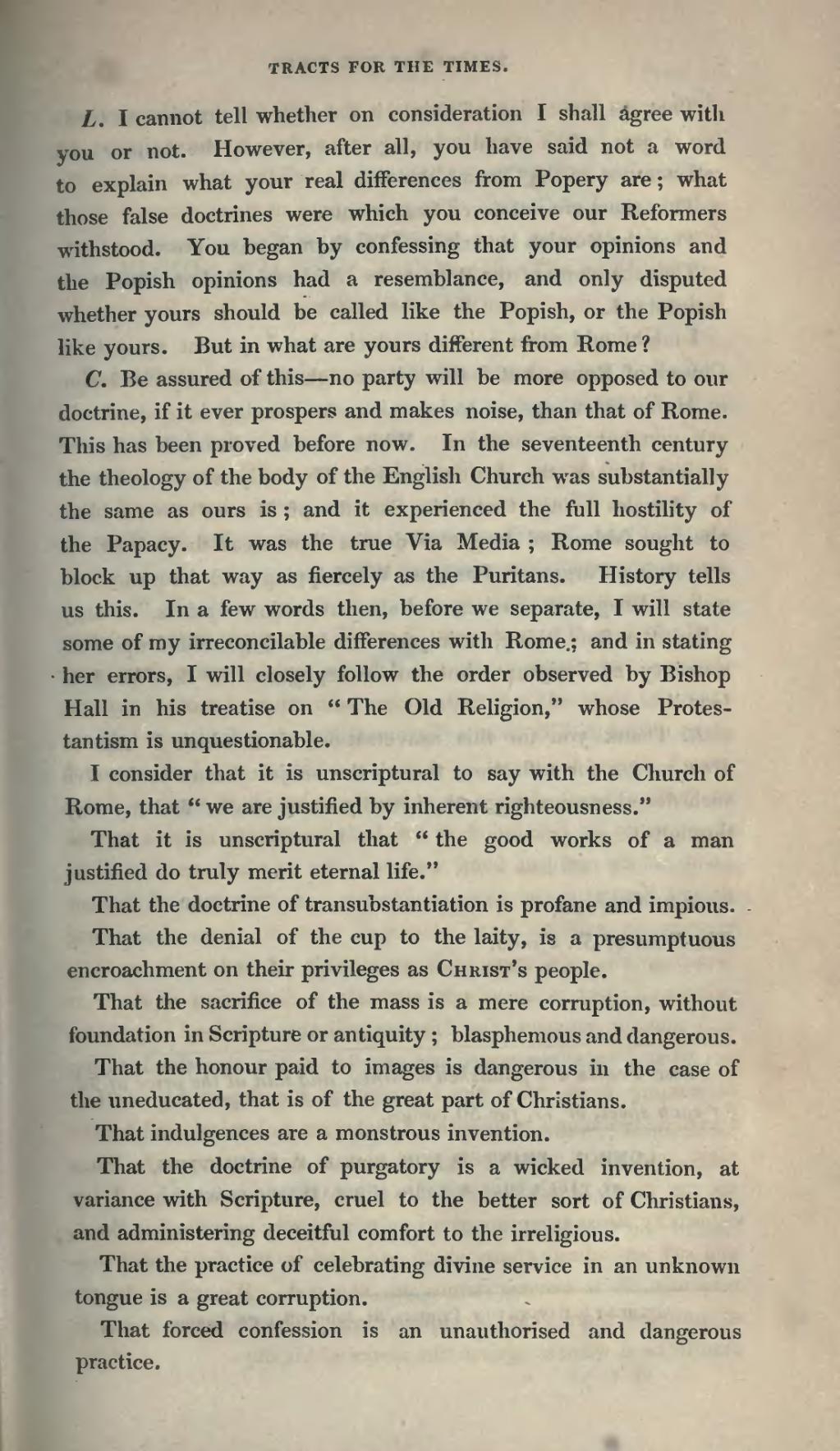TRACTS FOR THE TIMES.
L. I cannot tell whether on consideration I shall agree with you or not. However, after all, you have said not a word to explain what your real differences from Popery are; what those false doctrines were which you conceive our Reformers withstood. You began by confessing that your opinions and the Popish opinions had a resemblance, and only disputed whether yours should be called like the Popish, or the Popish like yours. But in what are yours different from Rome?
C. Be assured of this—no party will be more opposed to our doctrine, if it ever prospers and makes noise, than that of Rome. This has been proved before now. In the seventeenth century the theology of the body of the English Church was substantially the same as ours is; and it experienced the full hostility of the Papacy. It was the true Via Media; Rome sought to block up that way as fiercely as the Puritans. History tells us this. In a few words then, before we separate, I will state some of my irreconcilable differences with Rome,; and in stating her errors, I will closely follow the order observed by Bishop Hall in his treatise on "The Old Religion," whose Protestantism is unquestionable.
I consider that it is unscriptural to say with the Church of Rome, that "we are justified by inherent righteousness."
That it is unscriptural that "the good works of a man justified do truly merit eternal life."
That the doctrine of transubstantiation is profane and impious.
That the denial of the cup to the laity, is a presumptuous encroachment on their privileges as Christ's people.
That the sacrifice of the mass is a mere corruption, without foundation in Scripture or antiquity; blasphemous and dangerous.
That the honour paid to images is dangerous in the case of the uneducated, that is of the great part of Christians.
That indulgences are a monstrous invention.
That the doctrine of purgatory is a wicked invention, at variance with Scripture, cruel to the better sort of Christians, and administering deceitful comfort to the irreligious.
That the practice of celebrating divine service in an unknown tongue is a great corruption.
That forced confession is an unauthorised and dangerous practice.
